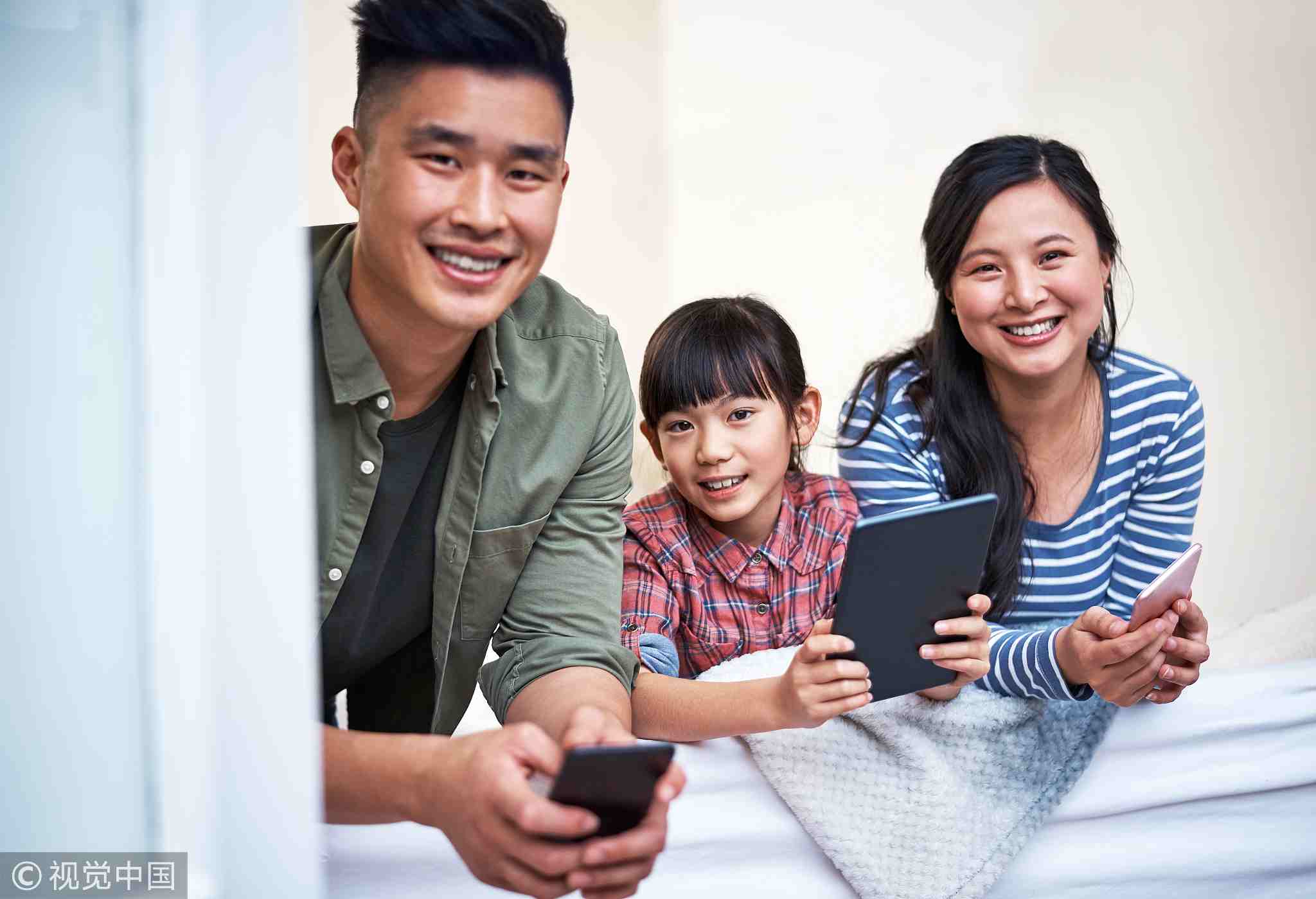
From the People's Daily app.
And this is Story in the Story.
It has become a common trend for parents to post about their children online, but one young girl in China has drawn a lot of attention with her suggestion for parents to first get their children's permission before posting anything about them on social media.
11-year-old Zhang Chuyi from Shanghai said many of her peers actually prefer that their parents not share any information at all.
In research she did for the proposal for a presentation on Children's Day, Zhang found that most of her peers dislike posts by parents showing off moments such as their children's admission to prestigious schools or going abroad for summer camps.
"Such comparisons usually lead to parental dissatisfaction and anxiety, and then they put more pressure on their children," said Zhang, a student at Qiangwei Primary School.
Today’s Story in the Story looks at whether parents are posting too much about their kids and if they are doing more harm than good.

Family members are connected more closely with electronic devices. (Photo: VCG)
Zhou Yanli, the mother of a first-grader in Shanghai, said, "Parents' good will in sharing their children's happiness and success with others is understandable." But she admitted that viewing her friends' posts about their children does sometimes increase her sense of anxiety.
"Some friends show their children every day in videos or animations, touting such things as their progress with English-learning apps or family vacations overseas during holidays, which makes us feel pressure," Zhou said.
She said children should have a right to make decisions about themselves and getting permission shows respect for a child's privacy.
Zhou said she began to ask her daughter for permission before posting pictures when she was in primary school. "If she doesn't nod, I won't post it," she said.
You Lina, who is responsible for cases involving juveniles at Shanghai's Changning district procuratorate, said adults and children usually hold very different views on the matter.
"What the parents post about their children that they believe is funny may embarrass the kids and even make them lose face in front of teachers or classmates, who usually access those posts," You said. "Very often, children believe that what they do at home is private and they don't want it to be shown to others."
Legally speaking, children have a right to images of themselves, and custodians may not use images against a child's will, You said.
She suggested parents think twice before sharing their children's information on social media.
"Although parents don't post their pictures for profit, they can't control the speed that such images will spread in the age of new media and can't imagine how far they can go."
It’s called ‘Sharenting’ in English and ‘Shaiwa’ in Mandarin and it means the overuse of social media by parents to share content based on their children. It has been at the heart of a discussion that has been ongoing on Chinese social media recently.

(Photo: CGTN)
In China, there is not just a word for ‘sharenting,’ there is even a word to describe parents who ‘sharent’ like crazy: Shàiwá Kuángmó meaning something like ‘Sharenting Crazy Devils.’
Another side issue associated with this is what if children are too young to give their permission and from what age are they able to give consent?
It’s possible that sometimes lines can get blurred as a comparative study on parent-child relationships in the digital era has shown that 63.8 percent of primary and secondary school students in China chat with their parents via social network platforms, according to a report published in November 2018.
The rate of chatting online with parents among Chinese primary and middle school students is higher than the rates in the three other countries studied - the United States, Japan and the Republic of Korea (ROK) - according to the report.
Only 15.4 percent of primary and middle school students in China have never chatted with their parents online, much lower than the 49.7 percent in the United States, 46 percent in Japan and 30.7 percent in ROK.
As for the willingness to disclose one's social network page to one's parents, the rate among China's primary and middle school students is 68.3 percent, higher than the rate in the other three countries.
The relatively high rates of online chatting and sharing of social network pages in China have demonstrated there is active interaction between parents and children on new media, but parents should prioritize face-to-face communication with their children, the report said.
(Produced by Nancy Yan Xu, Brian Lowe, Lance Crayon, and Chelle Wenqian Zeng. Music by: bensound.com. Text from China Daily, CGTN)


